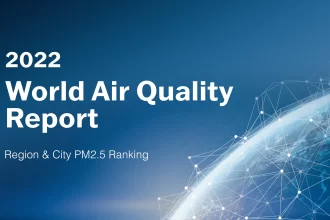Birmingham’s clean air zone (CAZ) has reduced the levels of nitrogen dioxide gas (NO2) – an air pollutant which adversely affects people’s health, a new study reveals.
University of Birmingham scientists used an innovative technique to discover that during the CAZ’s first seven months of operation, after correction for weather and seasonal effects, it resulted in ‘modest, but significant’ reductions in NO2 of up to 7.3%.
The new techniques produce a more accurate quantification of the clean air interventions– applying a method called – ‘random forest machine learning’ to strip out the effects of weather on air pollution levels, and then comparing the ‘de-weathered’ air pollution data in the Birmingham CAZ with those from cities with no CAZ, to quantify the ‘causal’ impact from the initial operation of the Birmingham zone.
Their work, which is funded by Natural Environment Research Council and supported by Research England under the Policy Support funding stream, is part of the WM-Air project. The study provides a blueprint for cities across the UK and beyond – such as London, Glasgow, Munich, Milan, and Amsterdam – to analyse the effectiveness of their own Clean Air interventions.
Publishing their findings in Environmental & Resource Economics, the researchers reveal that, over the first seven months following the CAZ launch in June 2021, the biggest reductions in NO2 are at busy roadside locations within the CAZ with, as expected, no significant changes at the urban background site located outside the CAZ.
They also found reductions in NO2 levels on roads outside the CAZ – suggesting that rather than displacing traffic to areas outside the CAZ, there could be positive effects, such as behavioural changes that contribute to reduced air pollution in surrounding areas, beyond the area of the CAZ itself.
Lead author Dr Bowen Liu, an assistant professor from the University of Birmingham, commented: “Our work provides the first comprehensive evaluation of the Birmingham Clean Air Zone, an internationally significant policy to improve urban air quality in the UK’s second city. As predicted, Birmingham’s CAZ reduced NO2 pollution, but it has no detectable impact in the concentrations of fine particles, PM2.5 – the air pollutant with greatest health effects.”
Professor Zongbo Shi, a senior author who oversaw this work, added: “PM2.5 at monitoring sites in Birmingham still regularly exceed WHO air quality guideline levels, at which health impacts occur with significant health implications, including hundreds of premature deaths every year. More rigorous policy interventions – such as further local measures to reduce wood burning and agricultural emissions and nationally co-ordinated actions to mitigate secondary PM2.5 pollution – are needed to address non-vehicle sources of PM2.5 as quickly as possible.”
Air pollution is one of the largest risks to the health of urban populations, with short- and long-term exposure shown to increase the risk of acute and chronic disease outcomes and reduce life expectancy. Improving air quality reduces healthcare costs, including to the NHS, and boosts economic productivity with lower levels of pollution-related illness.”
The study unites the work of University of Birmingham atmospheric researchers and environmental economists. The novel approach combines the ‘de-weathering’ approach with economic science approaches – the causal inference method which won the 2021 Nobel Prize in economic sciences . Professor Shi and his team have successfully applied this approach to air pollution studies in China and the UK.
Co-authors Professors Rob Elliott and John Bryson commented: “Tackling the air pollution challenge facing us requires an interdisciplinary approach, of which this research is an excellent example – drawing contributions from social, medical, and environmental sciences. Such an approach can also be used to inform the design and modification of existing or even proposed policy solutions.”











